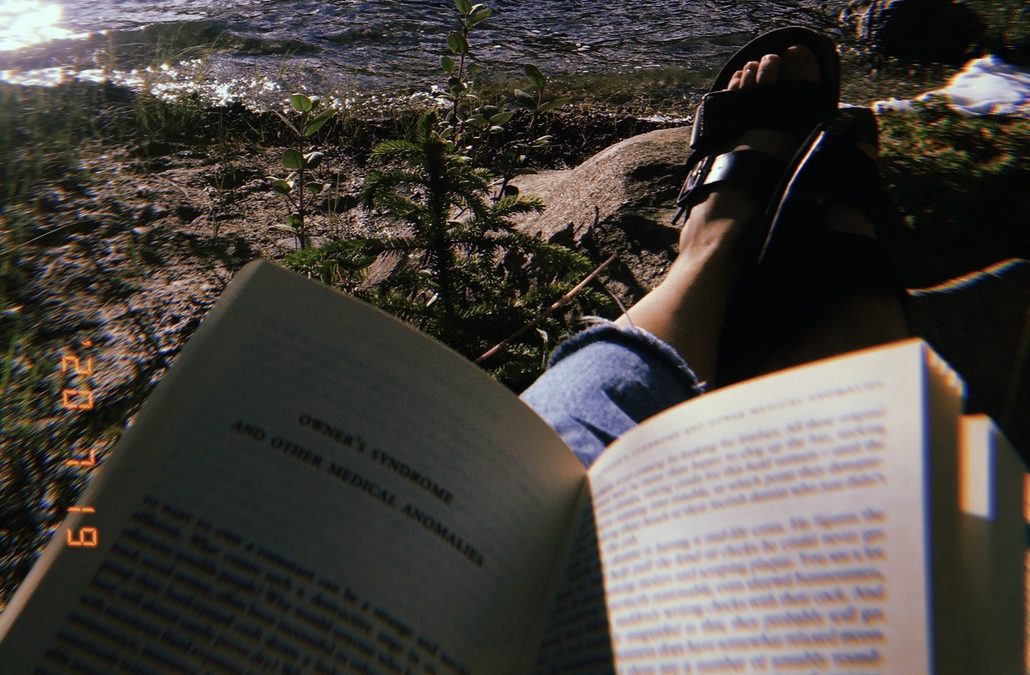My dad is a big reader who likes to support local bookshops. This means he routinely comes home with a small stack of books in his bag; one picked specifically for me, my sister, and my mother. I secretly think bringing home books for his family is his love language—he chooses the titles with great thought and makes sure to explain why he thinks we’ll like his selections. For example, he gave my sister—a nurse who loves to ski—a book on heli-rescues in the mountains. My mum, Businesswoman and Political Correspondent Extraordinaire, often receives biographies and books on political happenings. One of the books my dad gave me recently was a narrative on female strength authored by several influential women in politics. It melted my heart to think that he saw a book on strong women in politics and thought of me, a political science grad who habitually has to google the definition of “democracy.”
Another book he brought home for me was written by a UVic affiliate (he knows me so well!) and it serves as the inspiration for this blog post. Hope Matters: Why changing the way we think is critical to solving the environmental crisis by Elin Kelsey.
To provide some context, I did some environmental work a few years ago and now I have a small obsession with waste management. I worry about the state of our environment—like many others—and I struggle to remain optimistic about our planet’s future. My dad really hit the nail on the head with this book choice. I’ll admit that I was skeptical after reading the title—how will “changing the way I think” eliminate billionaires and standardize waste management protocols? Do I really want another person to try and turn my environmental pessimism into optimism when a bleak future is so certain?
I read the book anyways. And I was so happy to be wrong. Kelsey discusses the importance of hope and I had an “aha!” moment when I realized the difference hope and wishing. Kelsey sums it up nicely on page 45:
Wishing and hoping are often entangled together, but they ask quite different things of us. Hopeful people, according to Shane Lopez, a cognitive psychologist and hope researcher, plan for and show up in ways they believe will help the future improve. Hope, in his definition, is active. There is an essential connection between hope and agency—our sense that we can take action. Studies show hope helps us to cope, which keeps us from disengaging from difficult situations. Wishful people, in contrast, see the positive outcome they are yearning for as out of their hands. Wishing demands no effort on our part. It’s the fantasy that things will just magically turn out okay.
Hope is not simply an emotion—it’s a way of thinking. Furthermore, hope is not limited to an environmental perspective and can be applied to any part of life that requires hard work and preparation. As I reflected after reading Kelsey’s chapter on hope, I recognized moments in my life when I felt hopeful. The first time I wrote the LSAT, I felt pure relief that it was over. When I received my score, it wasn’t high enough to apply to law school. The second time I wrote the LSAT, after sacrificing many months and working my brain harder than ever before, I felt relieved… and strangely hopeful. At the time, I didn’t understand what I was feeling; I would have labeled it as “cautious optimism.” Now, looking back, it’s clear that I planned for and showed up in a way that I believed would help improve my future. I put in the effort and was rewarded—and that gave me hope.
Now, I view hope as a tangible thing that I can reach out and grasp if I show up and put in the effort. David Orr, an environmentalist, describes hope as “a verb with its sleeves rolled up” (p. 54). Conveniently, Kelsey also explains how to learn to become hopeful:
According to hope theory scholars, when you find something you are deeply excited about, and you are good at it, invest your time in doing it. You will start having a flurry of hopeful thoughts. Hopeful thinking causes hopeful emotions, in the sense that positive feelings emerge from our sense of our own capacity to achieve desired goals. Feeling hopeful about one thing carries over to other situations…Successes help you to feel excited and enthusiastic, and thus more hopeful about other things.
I am hopeful for the future. And I’m hopeful that my dad will find more insightful books to bring home and share with his family. Our already-too-stuffed bookshelf will soon collapse from the weight of the love stored in every book he carries home.
Cheers,
Xaviere
